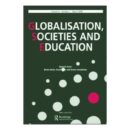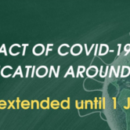Effective policy approaches to bridge the gender gap in academia

Over the last decades, the global share of women among teaching staff in HEIs has increased from nearly 35% in 1990 to close to 45% in 2020. Yet, behind this overall positive trend lies a different reality for women as their career progression is often impeded by a series of ´glass ceilings and sticky floors´. In recognition of International Women’s Day, UNESCO-IESALC has published a policy brief to outline the current situation of gender inequalities in academia and to propose policy measures to increase women’s access at all levels of academic positions.
Career progression in academia usually follows well-established paths, starting from PhD graduation to gradually move up to associate professor, full professor and academic leader positions. Each of these steps requires going through promotion processes that can raise structural barriers to women advancement. To address the gender gaps in academic positions, governments can rely on a wide range of measures using five broad policy instruments: regulation, funding, information, provision of services and collaboration. Overall, effective strategies to promote women representation in academic positions often requires complementing general gender policies for the society as a whole as a baseline (by addressing violence against women, promoting work-life balance, addressing equal pay, etc.), with a range of specific measures targeting academia.
Among the policy measures targeting the academic sector, implementing monitoring systems to collect data on the distribution of women and men at different stages of academic careers is critical because the factors contributing to gender inequality in academia vary significantly between countries, HEIs and across time. Monitoring systems allow identifying where the gaps in gender equality occur and implement the most appropriate set of policies to address them.
If the gender gap is already present in student enrolment, policy would first need to address cultural and structural barriers that discriminate girls in the education system. If the main gender gaps are identified at the PhD level or in early-career positions, policies should aim at increasing the attractiveness of the academic profession for women. If the gender gaps occur at more senior academic positions, policies should focus on changing appointment practices in HEIs by requiring the use of a diversity of performance metrics or gender quotas.
Some governments also develop specific initiatives to support the progression of women in academia such as funding programmes or training, mentoring, and networking opportunities to enhance women’s opportunities to access leadership positions. Many of these measures should be co-designed by governments and universities given the high autonomy of HEIs and their diversity.
The variety of policy options that governments can use to address gender inequalities in academia is further discussed in the latest policy brief from UNESCO IESALC, along with specific country examples. Raising awareness on these different policies, as well as on their possible uses and limitations, is critical to feed the broader conversation about gender distribution in academia and fill the need for evidence-based strategies to end persistent inequalities.
Authors:
Victoria Galán-Muros, Mathias Bouckaert and Jaime Roser
RELATED ITEMS







